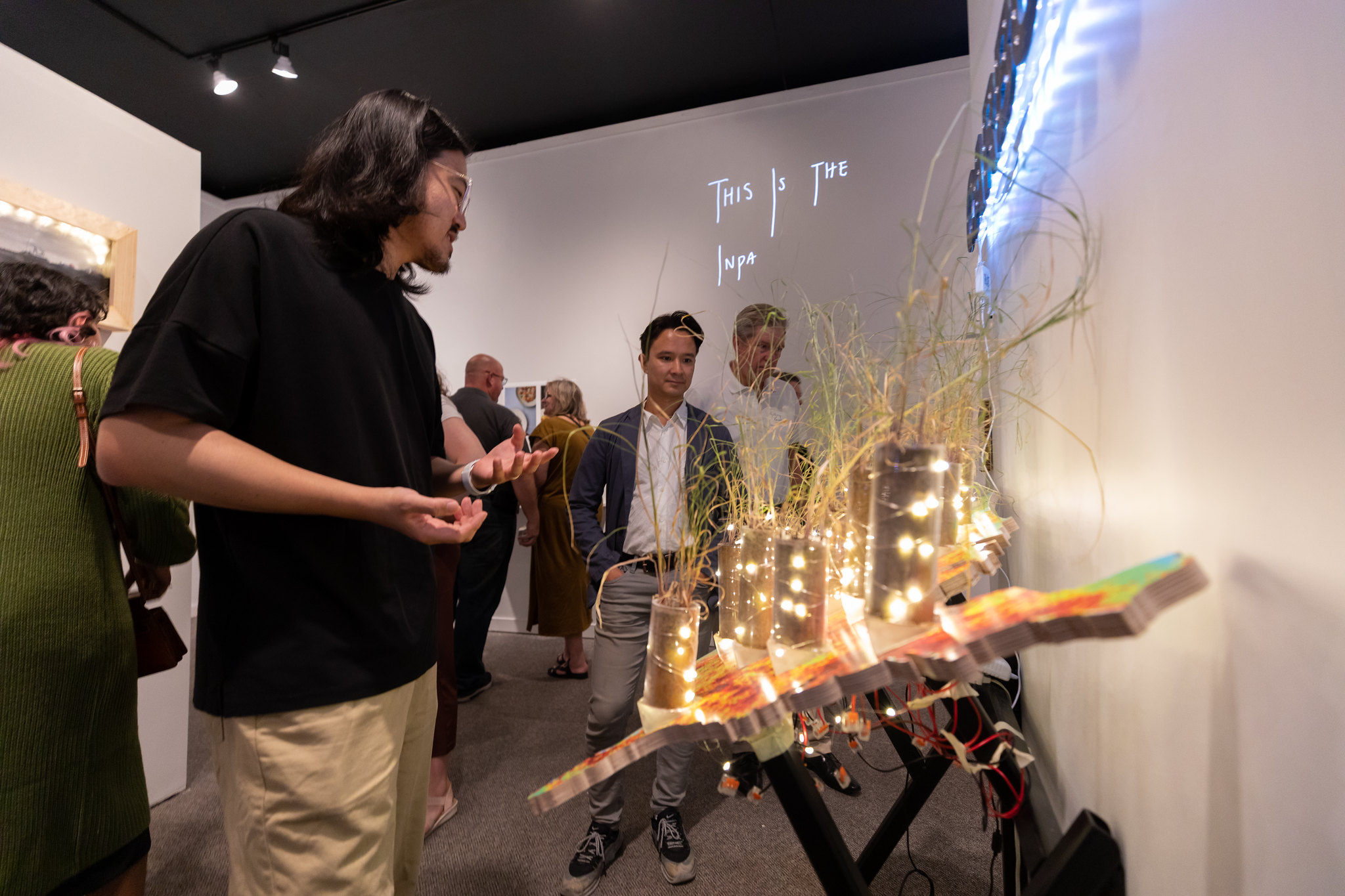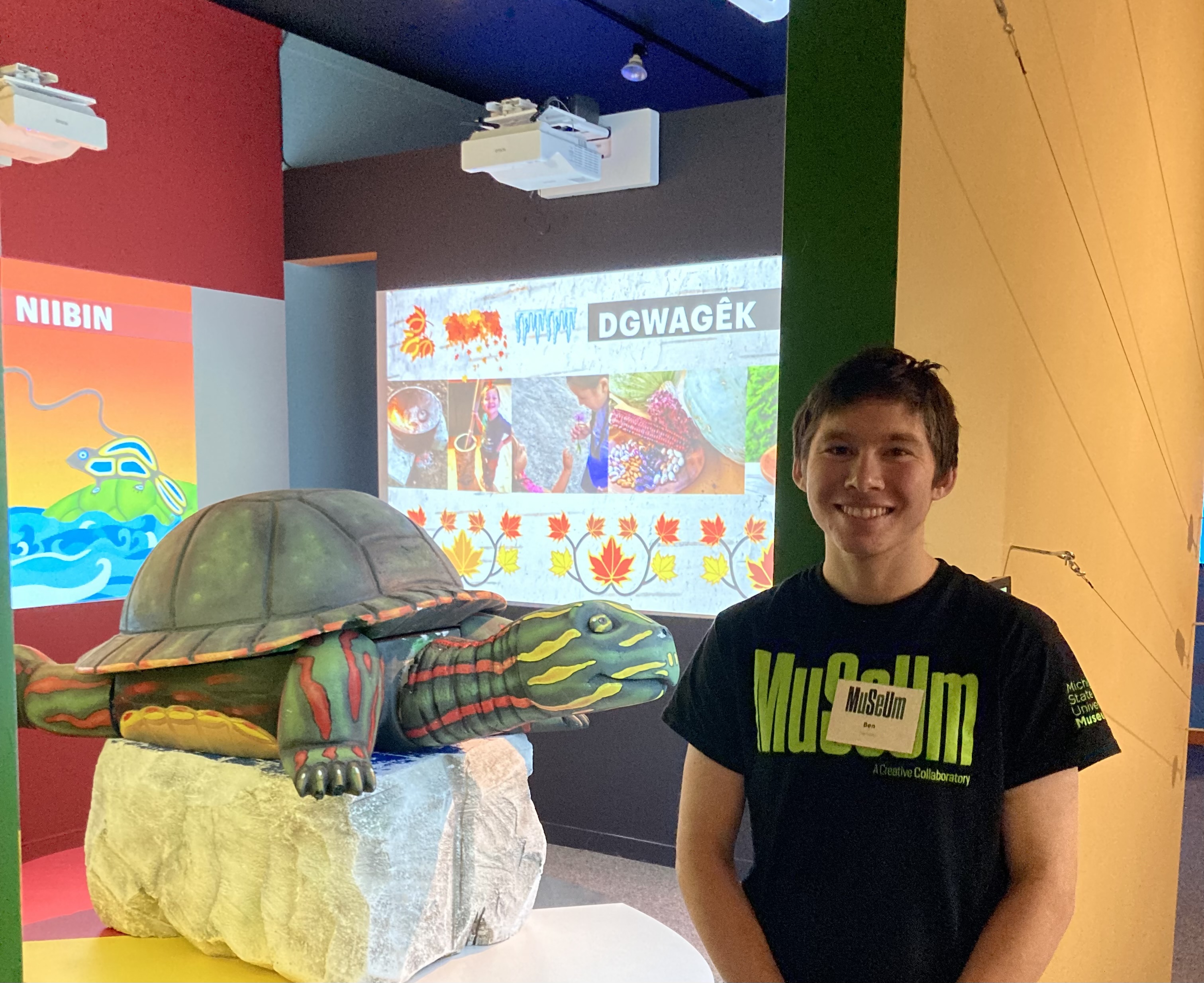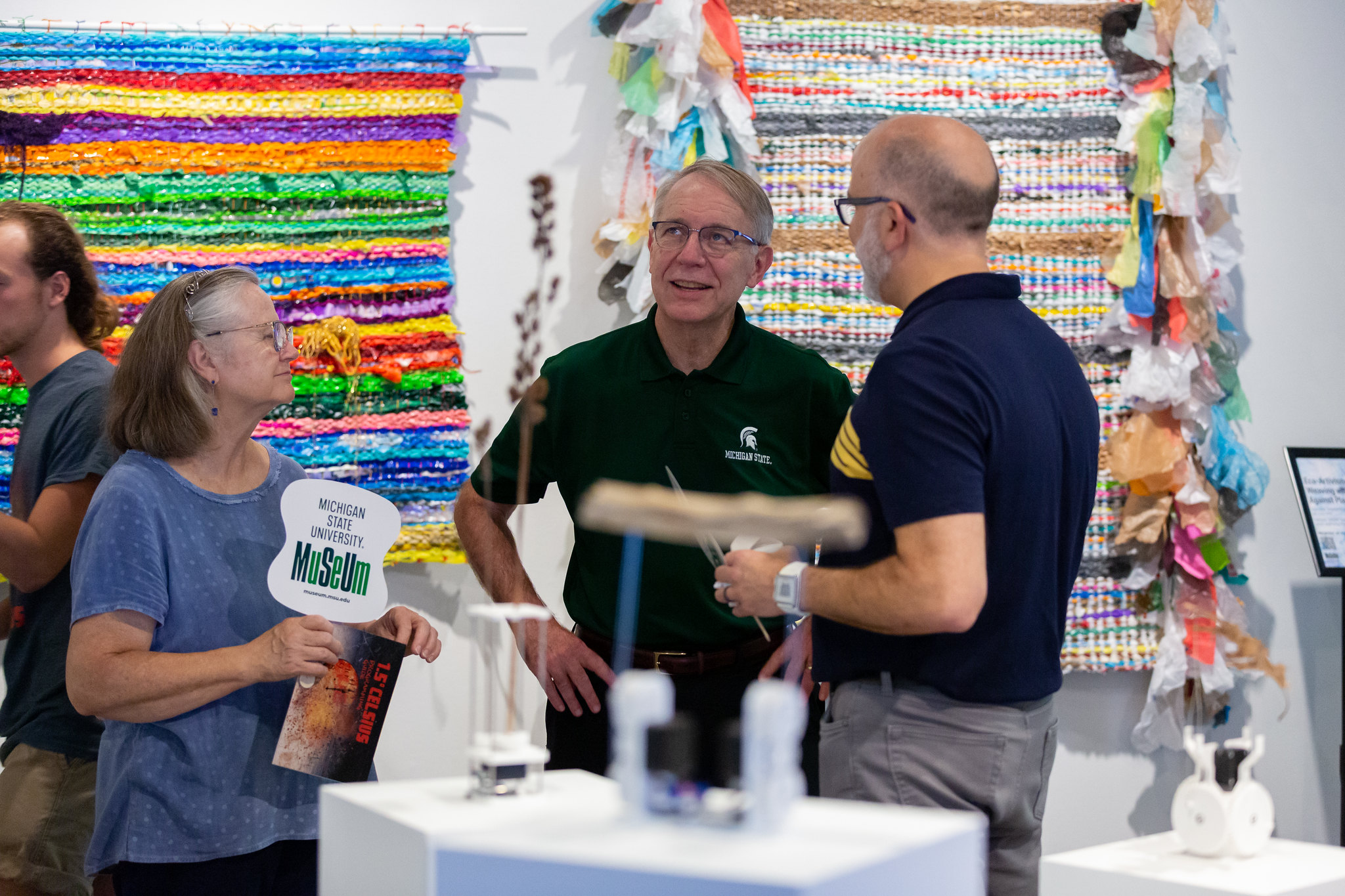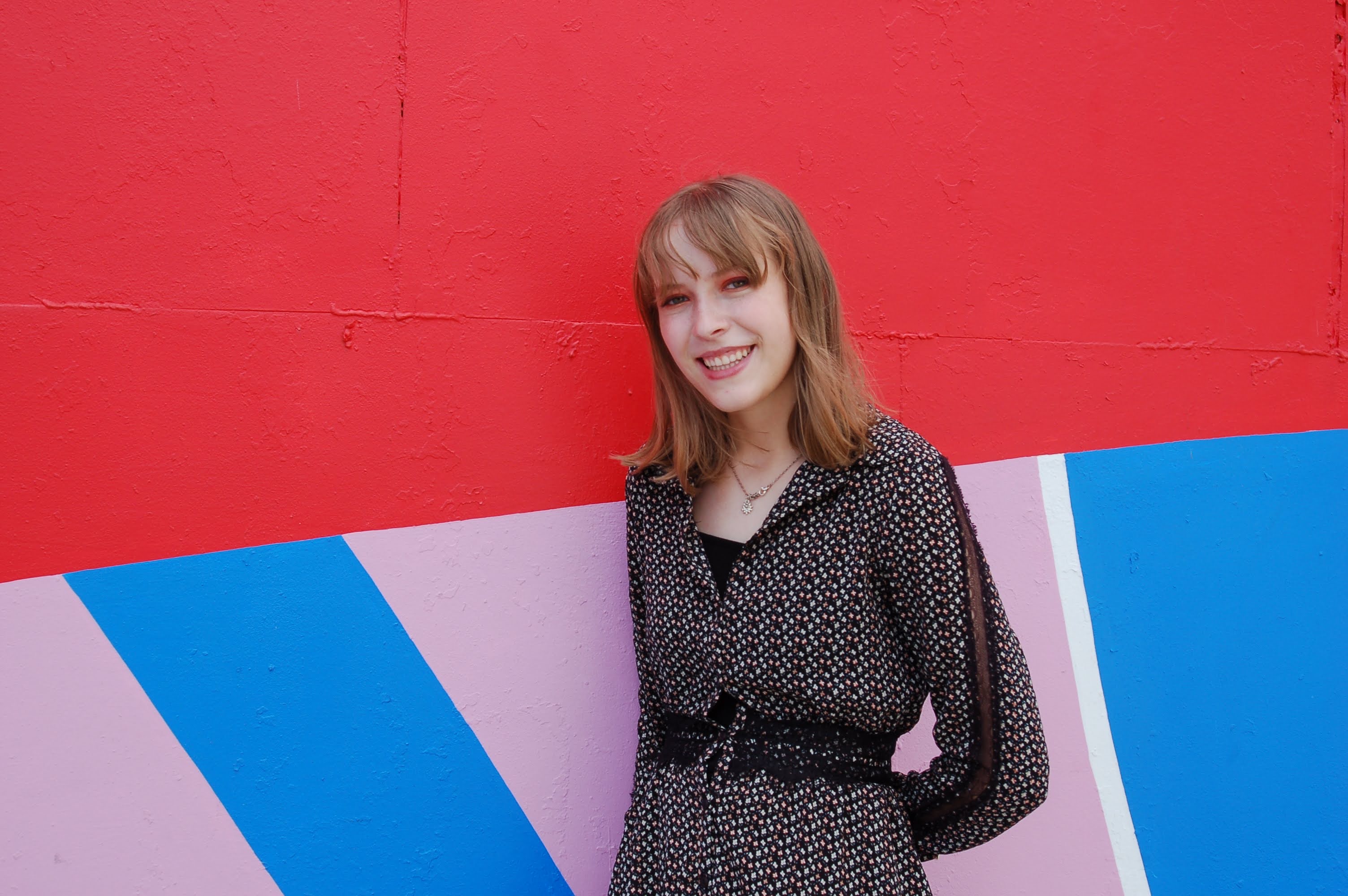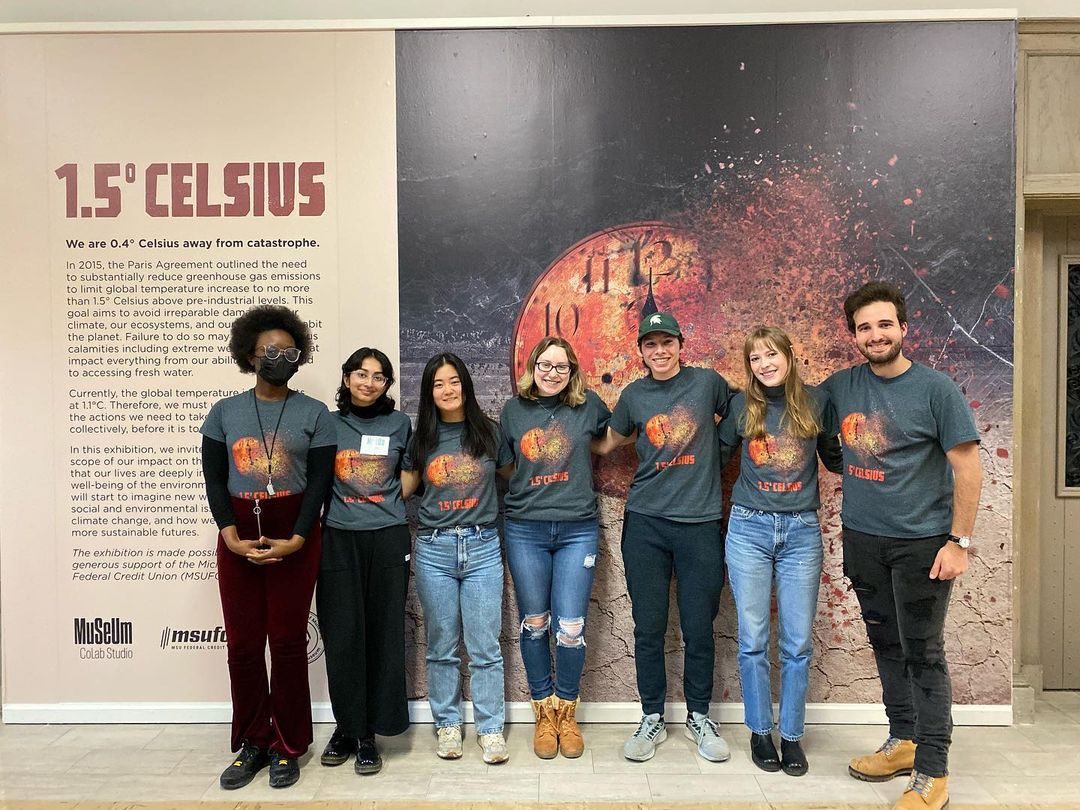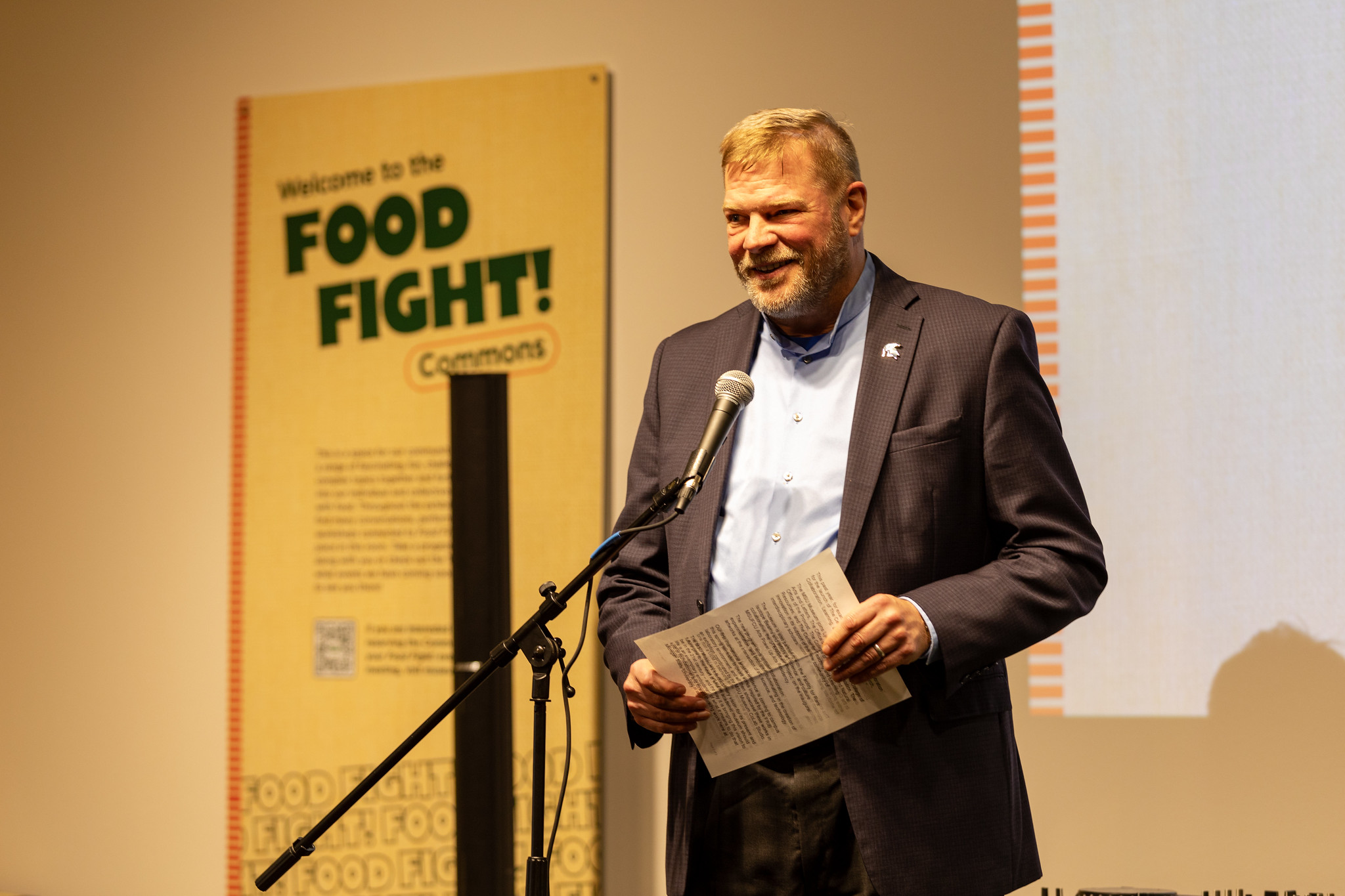A third space
CoLaborator program offering place and space for student success
Learning experiences outside of the classroom enhance, complement, and develop skillsets and expertise beyond what students gain throughout their coursework. MSU Museum’s CoLab Studio provides students with these intentional experiential learning opportunities via the CoLaborator program, helping to fulfill MSU’s academic and strategic goals to integrate the arts into the student experience.
Making meaning on campus
Launched in September 2022, the MSU Museum’s CoLab Studio is dedicated to innovation and experimentation, focusing on exhibitions and programs that engage MSU’s students, faculty and researchers.
Exhibitions in the CoLab Studio are submitted through a global open call with topics focused on global challenges relevant to most studio audiences. A curatorial team of MSU Museum staff, subject matter experts in the topic area, faculty and other educators, and students determine what exhibits are featured.
A large focus of the CoLab Studio is the CoLaborator program which brings undergraduate and graduate students into the exhibition space as “CoLaborators” to help bridge the gap between visitors and the works being displayed. CoLaborators are trained to have meaningful, engaging conversations about the current exhibits. These students are not museum guides and do not provide tours – rather they are participating in unscripted conversations with visitors, personalizing and socializing the museum experience.
CoLaborators represent an interdisciplinary subset of students—from biology, to arts, to writing, students from all backgrounds are interacting and creating meaningful experiences for museum visitors. “Academically, students sometimes feel they must choose between the arts and the sciences,” said Caroline White, CoLab education and learning manager at the MSU Museum. “As a CoLaborator, students can engage in a subject matter they may have been drawn to at some point but couldn’t pursue – it gives a third space to engage and explore questions of interest.”
Previous CoLab exhibitions have included Tracked and Traced in 2021 which explored the topic of surveillance and 1.5° Celsius in 2022-23 which highlighted the global climate crisis. On Jan. 9, the CoLab Studio’s exhibition Food Fight! opened, which dives into the complex food systems on the planet and our relationships to them.
Sustaining an interest
For MSU senior Ben Adams, it was his interest in sustainability that first drew him to working with the CoLab Studio during his junior year. After seeing a flyer posted in 1855 Place, it sounded like an intriguing opportunity.
Studying biosystems engineering, the 1.5° Celsius exhibition was closely connected to his course of study. “I was able to find a lot of really cool connections to what I was studying. In my bioenergy class, we learned all about switchgrass as a bioenergy crop, which one of the pieces [in 1.5° Celsius] was specifically about. There was also another piece about biochar, a versatile material produced from organic waste, which I’ve also covered in my classes,” said Ben.
For him, the experience is two-fold: it has taught him how to uncover and learn from all the varying perspectives one can have on a single subject, while also helping him refine other skillsets, “I can do public speaking through presentations in my classes, but this is a different setting – it’s not scripted, you have to think on your feet, and it has helped me learn how to explain things in a concise way.”
With graduation close on the horizon, Ben has been thinking about his next steps, “A job in a research lab would be nice, or something where I can move around every few years, but definitely in the bioenergy field.” And he’ll be taking every bit of his experience as a CoLaborator with him.
Finding the future
For Emily Paterson, MSU senior, being a CoLaborator has helped her take on experiences and challenges she may not have otherwise. Studying professional writing and experience architecture, she brings a different perspective to the CoLab Studio’s exhibitions.
Emily first worked as a CoLaborator for the 1.5° Celsius exhibition. She was attracted to the opportunity at the CoLab Studio because it felt like a way to make an actual difference. “The topic of 1.5° Celsius was about climate change, and being involved as a CoLaborator felt like something that was really tangible in terms of how you educate people and how you make a little bit of a difference through what you’re doing,” said Emily. She sees her role as helping visitors down a path to understanding better their relationship to the exhibits and the topics they cover.
Not only has the experience provided Emily with a confidence boost and helped her develop her communication skills, but it has also led to even more opportunities, “I was able to use my experience with the MSU Museum to work with the Smithsonian Leadership for Change Internship out of the MSU Museum, where we evaluated a traveling Smithsonian exhibit and interviewed visitors to see what they learned and then compared that with the goals of the exhibit.”
But importantly, as a CoLaborator she’s able to explore her personal passions in addition to what she’s studying in her major. “This serves as a way for me to stay connected to those environmental interest areas and learn more about those topics,” Emily explained.
As Emily prepares for upcoming graduation, there is no question her work as a CoLaborator has shaped her future, “I’ve added Museum Studies as a minor because of this experience. And I get to spend my time with people studying all sorts of different things, so I get to ask them about what they are learning and what they do.”
Beyond the classroom
Helping students succeed in academics is undoubtedly one part of preparing them for graduation and life beyond, but successful students are also those who can discover and make connections with who they are outside of the classroom with what they learn in the classroom. The CoLab Studio at the MSU Museum not only provides a space for discussing the complex challenges and topics of our time, but it is also providing an innovative and creative space for a student experience that sets them up for success, during and after their time at MSU.
The MSU Museum is part of University Arts and Collections within the Office of the Provost. Collectively, university arts and collections units employ approximately 300 students annually—and from 68 majors across 14 colleges in the last year—in a range of paid, professional positions that help set them for success after graduation.
To learn more about the MSU Museum, current exhibits and the CoLab Studio, visit museum.msu.edu, and read more about the current CoLab exhibit, Food Fight!, here.
The MSU Museum’s CoLab Studio is generously supported by MSU Federal Credit Union.
By Kristina Beatty
